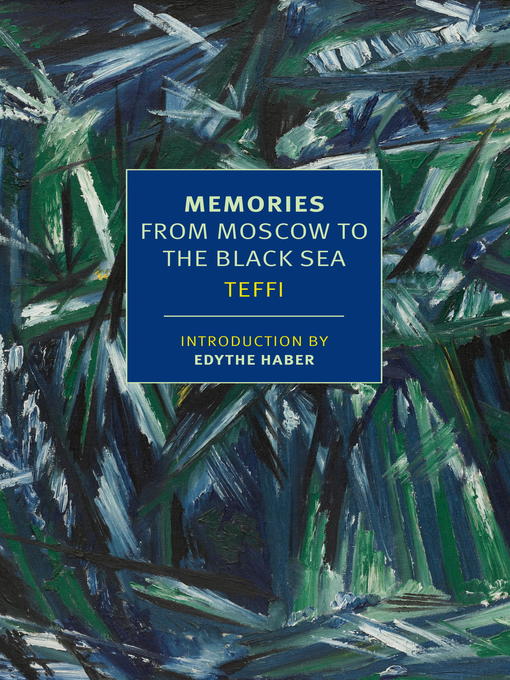
Memories
From Moscow to the Black Sea
کتاب های مرتبط
- اطلاعات
- نقد و بررسی
- دیدگاه کاربران
نقد و بررسی

Starred review from March 7, 2016
The first-ever English translation of Russian writer Teffi’s memoir follows the top-notch satirist as she embarks on a literary tour of Ukraine in 1918, simultaneously fleeing the Bolsheviks and journeying “south, always further south, and always without any deliberate choice” until reaching Yekaterinodar, where her account ends. Teffi’s memoir is a departure from typical self-absorbed, navel-gazing fare: she was best known in early-20th-century Russia as a feuilletonist, a writer of breezy and witty cultural essays, and her recollections center on the colorful, comical, desperate, and persistent characters she meets along the way. Here, she alternates quick, playful dialogue and sly observations of human behavior with gruesome images—a Bolshevik boiled alive, a dog dragging a chewed-off human arm, bloated cow corpses bobbing in the ocean—and occasional moments of stunning lyricism, a testament to her background as a songwriter as well as the skill of the translators. “There is nowhere a human being cannot live,” Teffi writes, and this is perhaps the overarching theme of her work; throughout the memoir, oppressed and terrified Russians binge on apples and delight in new dresses made from medical gauze (“It’s good hygiene too—thoroughly sterilized,” a friend boasts to her excitedly), refusing to cede their everyday pleasures to political terror. This collection of vignettes about life as a refugee is by turns hilarious, beautiful, and heartbreaking, and strikingly holds up despite being a century old.

March 15, 2016
Poignant reflections of a beloved Russian humorist as she fled her homeland on the eve of Bolshevik victory. As more of the work of Russian poet, playwright, and short story author Teffi (the nom de plume of Nadezhda Aleksandrovna Lokhvitskaya, 1872-1952) is translated, her English-language fans will certainly increase, as she is a delightful stylist, dialogist, and observer of her era. Teffi was known for her wry poetry and feuilletons published in the Russian reviews of the first decade of the 20th century (Satirikon, Russian Word), yet her sympathy toward the Bolsheviks cooled when the magazine she wrote for, New Life, became a mere party organ; she then moved to Moscow. In her subsequent travels, she did not glean that fate was favoring the Bolshevik cause. As she first fled an increasingly intolerable existence in Petrograd, she moved with the rumors of safe areas still held by the "whites," Ukraine and the Black Sea. The stages of her journey during this precarious time make up these amusing and affecting "memories," first published in installments between 1928 and 1930 in a Russian-language newspaper in Paris, where she finally located permanently. The work chronicles her flight from Moscow and subsequent chaotic and perilous travels to Kiev and Odessa. She was first harnessed to a Ukrainian Jewish "impresario" named Gooskin, who helped mitigate her transfer (along with other motley characters) to the Ukrainian border, and then she traveled by ship from Odessa to Novorossiysk, where all kinds of fleeing types had washed up. Finally, she arrived in Yekaterinodor, where she had agreed to do two nights of readings. Throughout, the author's characterizations are precise and even ruthless, and she captures the tense mood of paranoia and sorrow of the refugee. Fluently translated by several hands and introduced by Teffi's biographer, Edythe Haber, these are priceless anecdotes and beautiful portraits of friends and acquaintances lost forever.
COPYRIGHT(2016) Kirkus Reviews, ALL RIGHTS RESERVED.

























دیدگاه کاربران